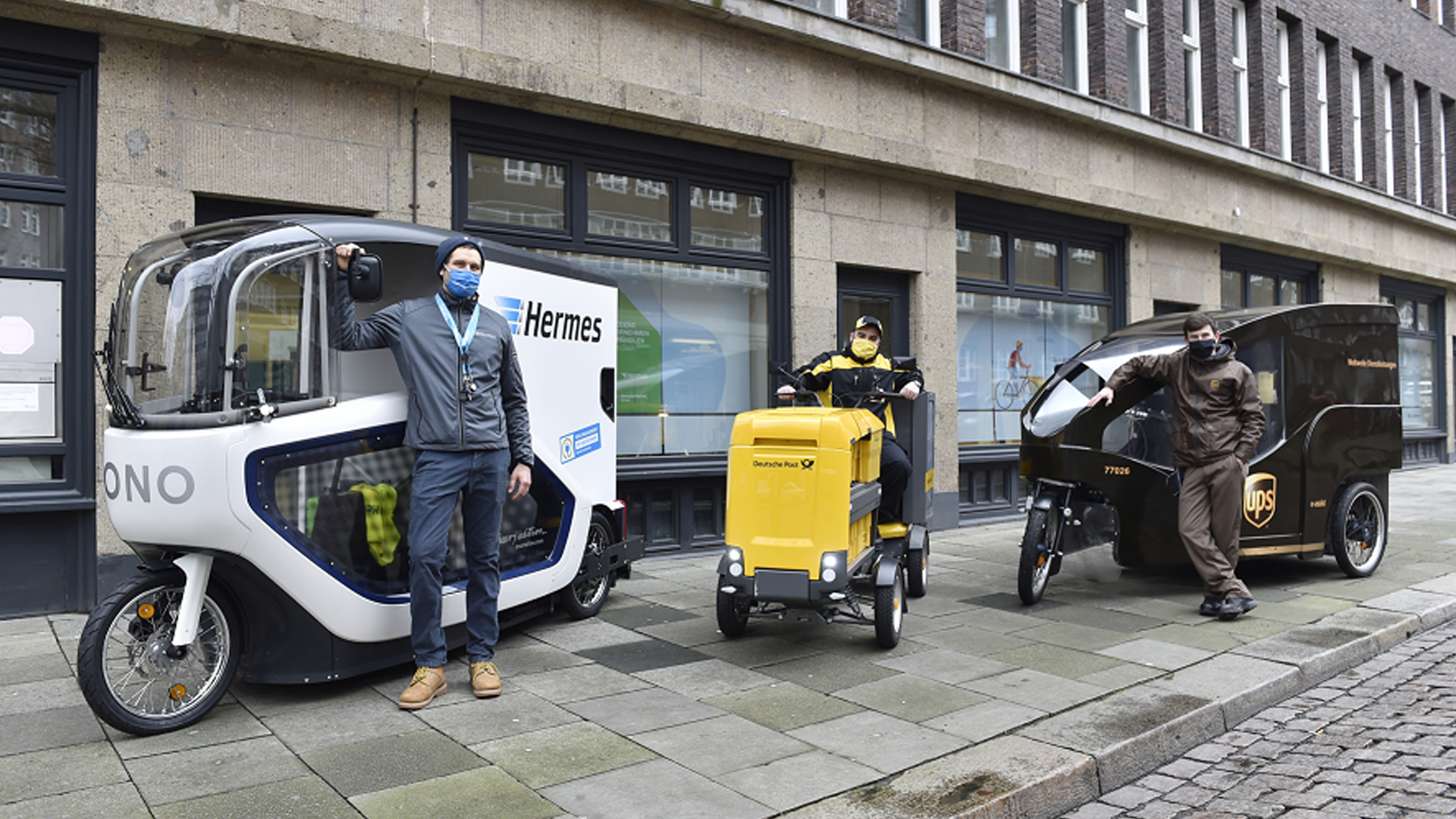Progressing towards a digitalized port
Hamburg as a port and logistics hot spot. The aim is to boost its competitiveness, to optimize processes and to mobilize resources more effectively. ...

Parcel and consignment volumes for courier, express and parcel services, as well as logistics service providers, are constantly rising. That’s also apparent on the streets of Hamburg, affecting traffic volume and not least, emission levels. To cut these two down, Hamburg is setting not only climate targets but others for urban courier, etc., services and inner-city logistics. The idea is to achieve these with alternative transport schemes, innovation and cooperation.
Initiated by Logistics Initiative Hamburg in cooperation with the then Department of Economics & Transport, ever since 2016 Hamburg has been a model region for Smart Last-Mile projects – SMILE and has since interwoven innovations in logistics and urban layout.
The “Urban Logistics Hamburg – Strategy for the last mile” paper cleared by the city parliament in October 2021 provides a clear idea of what the City of Hamburg aims to achieve by 2030. The main goal is a 40 percent reduction of CO2 emissions on 2017. To achieve this, the last-mile strategy involves strengthening cooperation between logistics companies and the city, and building up a network of all those operating on the last mile. Deliveries are to be made mainly by local, emission-free and alternative delivery vehicles like cargo bikes. City micro-hubs are to play a more significant part here, and act as the bases for delivery to the final customer. People collecting consignments themselves are to be given more opportunities for doing so at pickup points, or parcel outlets. Also aimed at reducing traffic, the related network is to be expanded. Hamburg‘s strategy for last-mile logistics also clearly relates to its climate-protection aims, to reduce C02 emissions by 55 percent by 2030 and to make Hamburg climate-neutral by 2050.
For implementation of the strategy, since the end of 2022 Hamburg has supported the new ‘Urban Logistic Contact Point’ as part of its Logistics Initiative. As a public- private partnership with more than 500 member companies and institutions in the logistics sector in the Hamburg Metropolitan Region, this could facilitate the desired networking.
„Alternative transport
and delivery
concepts for the
last mile“
In that context, the simplification of communication with and between the authorities and borough offices is an important task for the central coordination point. For the broad spectrum of urban logistics in Hamburg, which also already covers alternative delivery schemes, micro-hubs, bike logistics, and also stopping and parking, these topics and the very differing interests of the players will run together in the central contact point. Joint action should enable solutions and ideas on implementation to emerge. These will facilitate initiation of projects and the introduction and adoption of lasting and sustainable solutions.
To actively contribute to Hamburg projects is also part of the work here. The EU-funded projects ‘DECARBOMILE’ and ‘MOVE21’ provide one example. The DECARBOMILE project requires an electrically-driven craft – also serving as a micro-hub – to be tested as an emission-free means of transport for inner city parcel delivery by water. Here again, delivery along the last mile is to be aboard cargo bikes. The routine is similar with MOVE21, its special feature being the multimodal use of it.
These are just very few examples for the various projects based on micro-hubs and already in operation in Hamburg. Activities related to automated delivery, Box as a collection point, Smala smart delivery and load zones, as well as a large number of start-ups, will sustainably improve last-mile logistics.